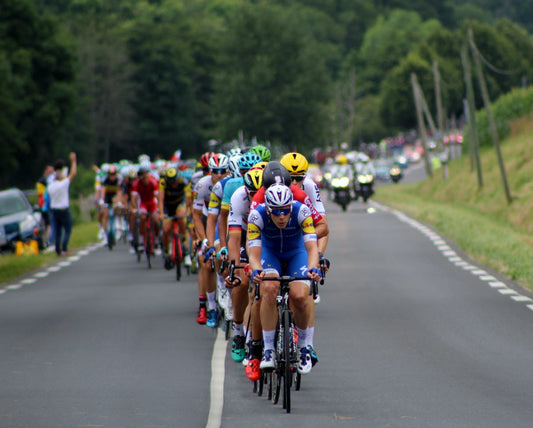bahnk owt
verb, noun
To become so exhausted from physical exertion that you can no longer continue cycling.
Example usage: The cyclist bonked out after 15 miles of climbing.
Most used in: Long-distance cycling events.
Most used by: Endurance cyclists.
Popularity: 8/10
Comedy Value: 5/10
Also see: Blow Up, Die, Hit the Wall, Cooked,
What does it Mean When a Cyclist 'Bonks Out'?
Cycling is an intense sport that requires a great deal of energy and endurance. To keep up with the rigors of the sport, cyclists must be aware of their body’s limits and make sure to refuel with the necessary nutrients before, during, and after rides. One of the biggest threats to a cyclist’s performance is called “bonking” or “bonk out.”
Bonking out occurs when a cyclist runs out of energy during a ride. This can happen when a cyclist has not eaten enough before a ride, has not taken in enough fuel during a ride, or has not replenished their energy stores after a ride. Bonking out can be a dangerous situation as it can lead to a loss of concentration, an inability to pedal, or even a crash.
According to a survey conducted by the National Institute for Fitness and Sports, approximately 10% of cyclists have experienced bonking out during a ride. Bonking out can be prevented by eating a balanced diet and taking in enough calories before, during, and after a ride. It is also important to make sure to take breaks during a ride and refuel with snacks and drinks to keep energy levels up.
Bonking out is a common issue among cyclists, but it can be easily prevented by following proper nutrition guidelines. By taking in the right amount of calories and drinking enough fluids, cyclists can avoid the risk of bonking out and ensure they have enough energy to finish their ride.
The Origin of the Term 'Bonk Out' in Cycling
The term “bonk out” is widely used in the cycling community to refer to a situation where a cyclist has depleted their energy and can no longer continue riding. It is believed that the term was first used in the early 1900s in the United States.
The term is thought to have originated from a cycling event in North America during the early 20th century. During this event, it was common for cyclists to become so exhausted that they could not continue and had to “bonk out”. This was likely due to the lack of proper nutrition and hydration during these events, as well as the long distances that were often covered.
The term has since become widely used in the cycling community, and is used to describe a situation where a cyclist has depleted their energy stores and can no longer continue riding. This can be caused by a variety of things, such as inadequate nutrition, dehydration, or simply pushing themselves too hard.
Whatever the cause, the term “bonk out” is a reminder to cyclists to take proper nutrition and hydration seriously, and to always be aware of their energy levels while riding.












